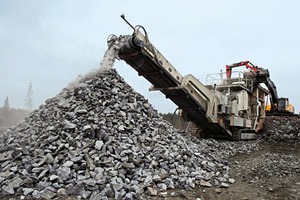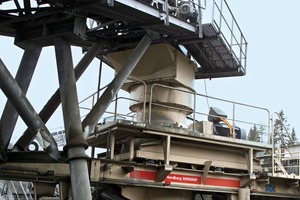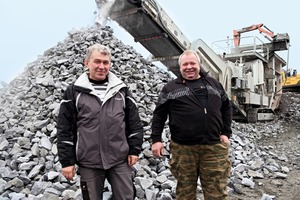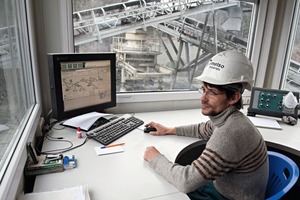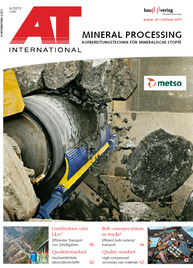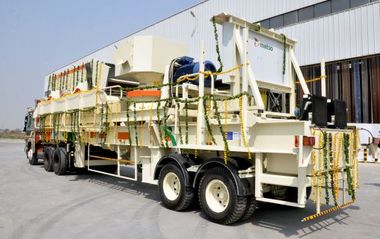Mobile crushing with the strictest quality requirements
Russia currently has some of the strictest aggregates quality requirements in all of Europe, specified in detail in several nationwide standards. Using Metso’s portable crushing and screening plants, Karelpriodresurs has exceeded the quality demands, in addition to increasing the quantities it produces.
Only the best granite and gabbro deposits, processed into highly cubical end products, can meet these Russian quality standards. Therefore, Karelpriodresurs carefully studies the rock quality in the quarries to be opened. Every plant built is exploited using Metso’s modern, three-stage crushing and screening process.
The company’s target is to open one portable plant every year. With its four existing ones, Karelpriodresurs targets production in 2012 of up to 6 million tons of high-quality aggregates. The fifth quarry will be built this year in Ihala, in the Leningrad region, some 200 kilometers from the multi-million city of St. Petersburg.
In close cooperation with Karelpriodresurs and Metso, a standard for a portable crushing and screening process has been developed. It usually consists of a track-mounted Lokotrack jaw plant at the primary stage (Fig. 1), a secondary stage operated with a cone crusher (Fig. 2), and a vertical shaft impactor to guarantee cubicity at the tertiary stage.
“Metso’s plant design has been good and reliable for us, and our cooperation is seamless. Metso listens to us carefully to solve any problems that may occur,” Sergey Popovich, responsible for the operations of Karelpriodresurs’ quarries, notes. “For example, Metso’s experts have been willing to redesign some product conveyors for more stability during the assembly and operational stages.”
The new Kaalamo portable plant, delivered by Metso, was started in late August 2011 (Fig. 3). Today, it refines hard gabbro into a wide variety of end products at a rate of 5000 t per 12 hour working day.
For the first time, the whole plant process is steered using the new MetsoDNA automation system. The control cabin is placed so that the operator, Sergey Horyy, has, in addition to the crystal clear process screens, a direct view of most of the plant (Fig. 4). “MetsoDNA software looks good. Some fine tuning will be done with Metso to achieve the best functionality,” Popovich adds.
To keep the quarries running in the middle of the remote Karelian forests, preventive maintenance is a key issue to ensure the availability of the equipment. All wear parts for the jaw, cone and vertical impact crushers are stocked at Metso’s warehouse in Petrozavosk. Karelpriodresurs’ own service personnel usually handles changing the wear parts.
Every three months, Metso’s engineer goes through the quarries, and opens and checks the functionality of all the crushers. This minimizes the risk of sudden failures. “Actually, spare part deliveries are our main concern. Customs clearance between the Finnish and Russian border usually takes too much time,” says Popovich.

